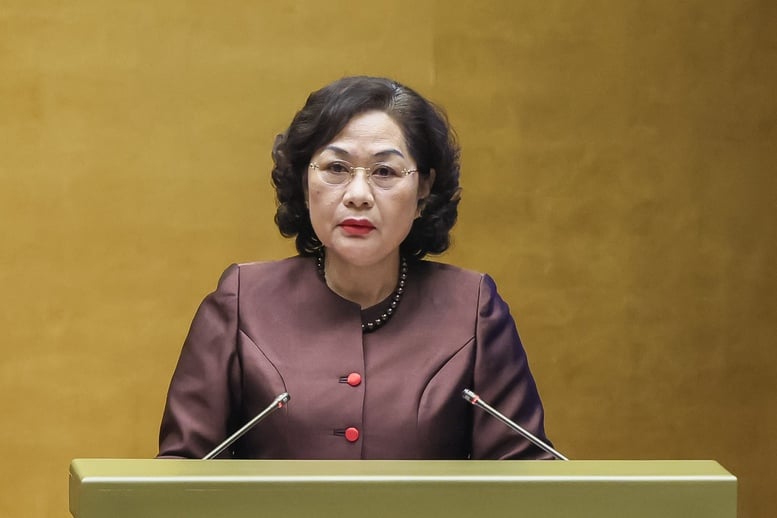
Governor of the State Bank of Vietnam Nguyen Thi Hong presents the Government's proposal at the National Assembly - Photo: VGP/Nhat Bac
Decentralization and delegation of authority in special lending decisions
Governor of the State Bank of Vietnam Nguyen Thi Hong presented the Government 's proposal to the National Assembly on May 20, saying that one of the important amendments and supplements in the draft is to adjust the authority to decide on special loans of the State Bank of Vietnam (SBV) in the direction that "SBV decides on special loans with collateral (TSDB) and without collateral for credit institutions".
Collateral for special loans from the State Bank as prescribed by the Governor of the State Bank. The special loan interest rate of the State Bank is 0%/year.
According to the Government's proposal, the amendment and supplementation of the State Bank's authority to decide on special loans in the direction of transferring the decision-making authority from the Prime Minister (in the case of special loans with an interest rate of 0%/year, special loans without collateral) to the State Bank aims to thoroughly decentralize and delegate authority to the State Bank in deciding on special loans; strengthen the role and enhance the responsibility of Government members.
At the same time, this regulation helps reduce intermediary steps in the implementation process; thereby, contributing to shortening processing time, ensuring timely implementation, security and safety of the credit institution system.
At the same time, the draft supplements regulations on the right to seize (TSDB) of credit institutions and debt trading and handling organizations in cases of handling bad debts and handling collateral of bad debts.
Specifically, credit institutions, debt trading and handling organizations are entitled to seize collateral. Seizure of collateral is only carried out in cases where the security contract has an agreement that the guarantor agrees to allow the secured party to seize the collateral of the bad debt when the collateral must be handled according to the provisions of law.
Regulations on the seizure of collateral are not unilateral and unconditional seizures but must comply with the scope, limits and conditions of seizure. At the same time, regulations on the order and procedures for seizure must be fair, public and transparent, ensuring the rights and legitimate interests of the obligated party, credit institutions and related parties.
The draft also clearly stipulates that during the seizure process, credit institutions are not allowed to apply measures that violate the prohibitions of the law or social ethics. Credit institutions are only authorized to seize to debt management companies and exploit the assets of that credit institution; debt trading and handling organizations are only authorized to seize to debt selling credit institutions and debt management companies and exploit the assets of debt selling credit institutions.
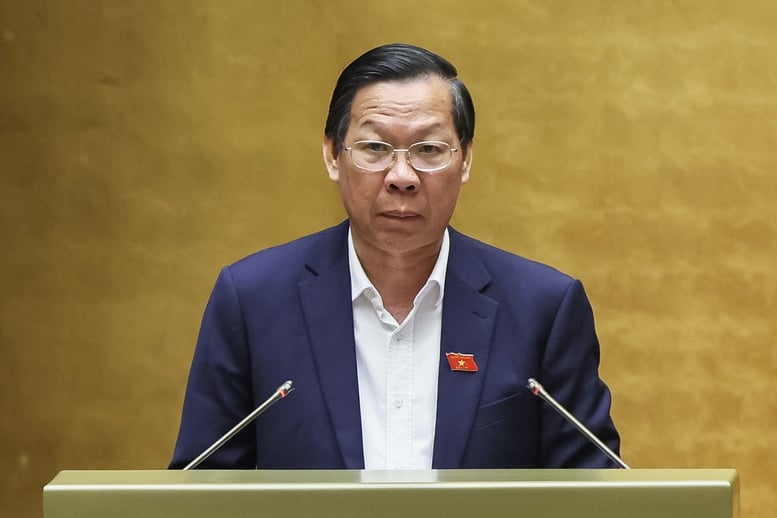
Chairman of the Economic and Financial Committee Phan Van Mai agreed with the Government's explanation of the three policies of Resolution 42.
Review of current regulations on special lending
The credit institution that is subject to compulsory transfer is authorized to seize the collateral for the credit institution receiving the compulsory transfer or the debt management and asset exploitation company of the credit institution receiving the compulsory transfer.
Regarding assets in cases, the draft stipulates that after completing the procedure for determining evidence and finding that it does not affect the handling of the case and the execution of the judgment, the prosecuting agency shall return the evidence in the criminal case which is the collateral of the bad debt at the request of the secured party, which is a credit institution, foreign bank branch, or debt trading and handling organization.
Reviewing these contents, Chairman of the Economic and Financial Committee (ECF) Phan Van Mai agreed with the Government's explanation of the three policies of Resolution 42 that were legalized. Some opinions suggested considering the scope of application of the three policies; having appropriate solutions to avoid credit institutions relying on the right to seize collateral to loosen lending conditions and credit appraisal, leading to the risk of credit being granted in violation of regulations while still allowing the right to seize collateral, affecting the legitimate rights of related parties.
The SBV also agreed to adjust the authority to decide on special lending for loans with 0% interest rate/year and loans without collateral from the Prime Minister to the State Bank.
At the same time, the appraisal agency proposed to review current regulations on special loans; study and detail criteria and conditions for special loans with 0% interest rate/year, loans without collateral; clearly and transparently stipulate lending procedures and procedures and have measures to strengthen control, prevent and limit possible losses; Review regulations of the Law on Credit Institutions 2024 related to the authority to decide on special loans to amend and supplement in accordance with the decentralization of authority to the State Bank, avoiding problems in implementation.
Phuong Lien
Source: https://baochinhphu.vn/chuyen-tham-quyen-quyet-dinh-cho-vay-dac-biet-lai-suat-0-nam-cho-ngan-hang-nha-nuoc-102250520144144077.htm


![[Photo] T&T 1 and Ho Chi Minh City 1 People's Police Teams won the men's and women's team championships](https://vphoto.vietnam.vn/thumb/1200x675/vietnam/resource/IMAGE/2025/5/22/39db06ae67cb4001b7a556e8d9a56d07)








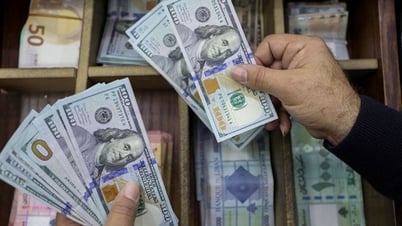
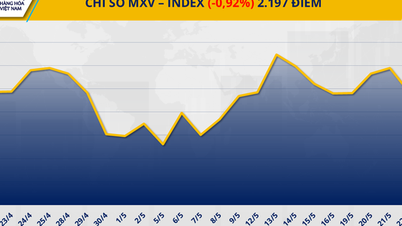







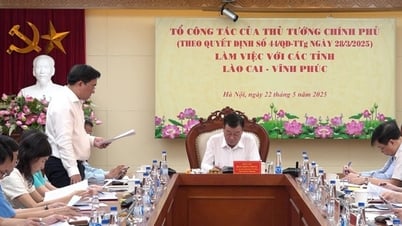
































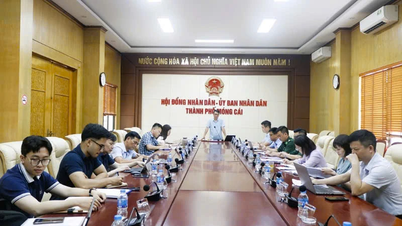





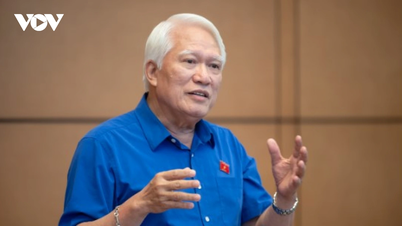





























![[Podcast] Week introducing more than 500 OCOP products in Hanoi](https://vphoto.vietnam.vn/thumb/402x226/vietnam/resource/IMAGE/2025/5/22/d144aac2416744718388dbae3260e7fd)


Comment (0)